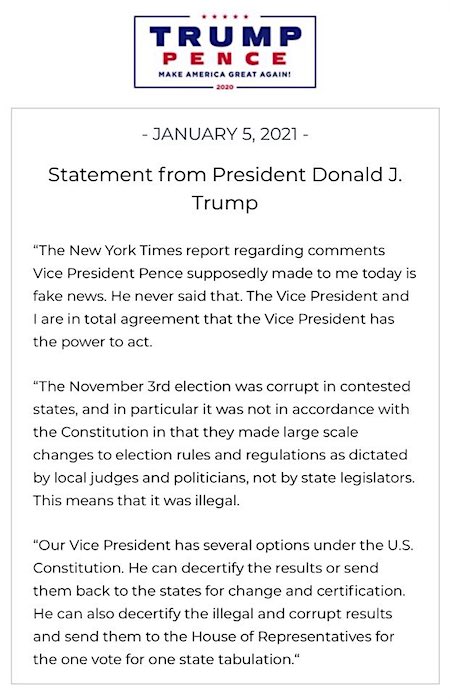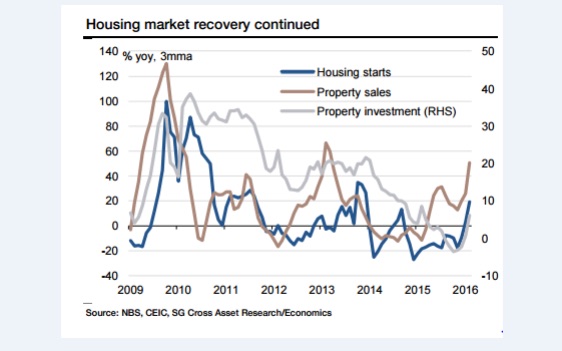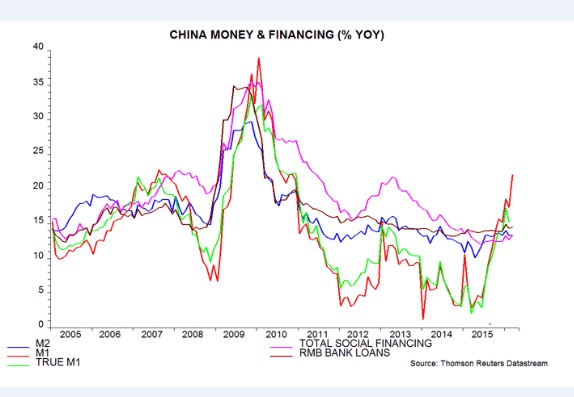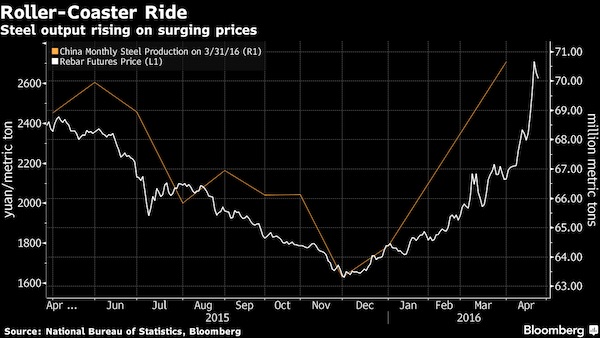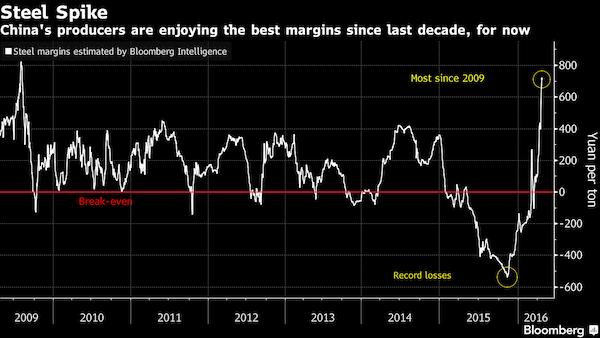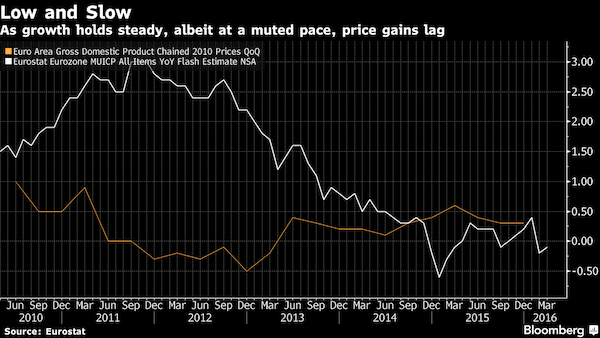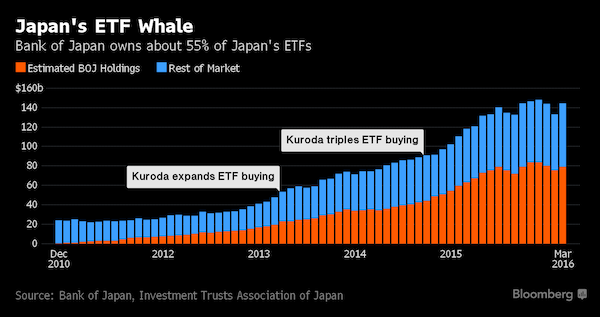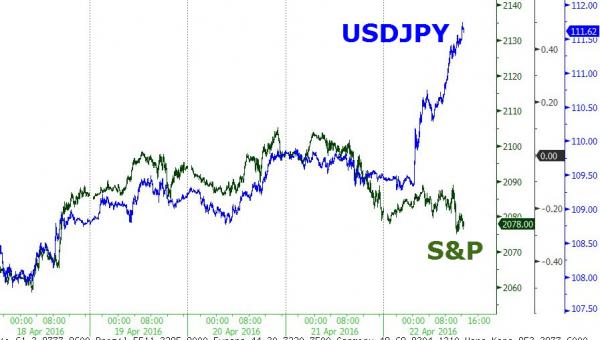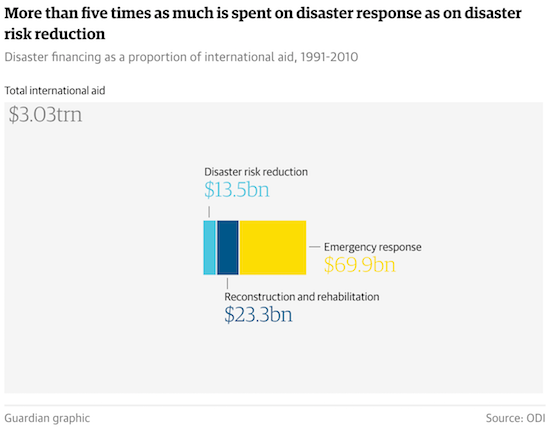
Leonardo da Vinci Ginevra de’ Benci 1474-78



I was ‘barred’ from publishing anything on Fauci: Former Forbes contributor
I was ‘barred’ from publishing anything on Fauci: Former Forbes contributor pic.twitter.com/ItBgfP8p9G
— Wittgenstein (@backtolife_2022) February 15, 2022

Dowd: Summation of Major Insurance company corporate group policy Loss Ratios (Death Claims) Q4 rate vs 2019 rate:
Unum $UNM +36%
Lincoln $LNC +57%
Pru $PRU +41%
$RGA +21%
Hartford $HIG +32%
MetLife $MET +24%
Why are some insurance companies banking on more deaths?
Hear from former Blackrock Portfolio Manager @DowdEdward and see the whole report on @OnLocals, @rumblevideo or my website! pic.twitter.com/Xho3ttLW2f— Kristi Leigh (@KristiLeighTV) February 16, 2022



“..Under the normal schedule, the Covid vaccines Phase III trials would be completed in April of 2024. If this phase went without a hitch, April of 2024 would be the earliest that anyone could justifiably start saying that the Covid vaccines are “safe and effective.”
• The Global Covid Vaccination Campaign Is Courting Catastrophe (Kohlmayer)
After receiving full approval, vaccines continue to be carefully monitored for adverse events in case some vaccinal flaw may have escaped detection during the multi-year trial phase. There have been a number of vaccines that were pulled from the market after they received full approval due to unexpected safety issues. Some of these include vaccines for Rotavirus, Lyme Disease, and Whole-Cell Pertussis among others. Therefore, for a vaccine to be justifiably declared “completely safe,” it must undergo at least five years of intensive testing in clinical trials and then several years of monitoring as it is administered in populations at large. The Covid vaccines, however, were publicly declared to be “completely safe” less than 8 months after the start of human clinical trials.
On the normal vaccine trial timeline, month 8 is in Phase 2 of the three-stage clinical trial regime. The claim that the Covid vaccines were “completely safe,” was, therefore, completely unjustifiable and unsubstantiated. Those who made this claim engaged in a deliberate and unconscionable act of public deception. And yet this claim was used as the basis for a worldwide campaign in which more than half of Earth’s inhabitants have been injected with experimental pharmaceuticals that did not undergo proper testing. The phrase “safe and effective” became the de-facto slogan of the planet-wide vaccination enterprise. Believing that the vaccines were “completely safe,” billions of people willingly – and even enthusiastically – lined up to receive their Covid injections.
Needless to say, not everyone was ready to accept the propaganda. Disregarding all reasonable objections, however, many governments decided that universal vaccination was their goal and decided that the unwilling needed to be coerced. This they sought to do through direct vaccines mandates and covid passports or digital certificates. The latter two were designed in such a way as to compel the hesitant to submit to the shots on pain of being excluded from the normal course of societal life. Government and public health officials justified this drastic approach by repeatedly stating that the vaccines were “completely safe” and effective, and because of this it was okay to force the shots even on those who did not want to take them.
The claim “safe and effective” was thus used as a means of allurement and coercion for the planet-wide Covid vaccination crusade. We need to pause here and contemplate the enormity of what the vaccinators have “accomplished.” Less than 22 months after the beginning of the clinical trials, they have managed to inject the plurality of mankind with their inadequately tested products. If things were being done properly, right now the vaccine developers would have been gearing for Phase III of clinical trials. This stage normally takes place between months 24 and 48 after the initiation of the trial process. This is how Johns Hopkins University describes what this stage is about: “Phase III clinical trials are critical to understanding whether vaccines are safe and effective.”
[..] Under the normal schedule, the Covid vaccines Phase III trials would be completed in April of 2024. If this phase went without a hitch, April of 2024 would be the earliest that anyone could justifiably start saying that the Covid vaccines are “safe and effective.”


“It runs from the brain throughout the entirety of the face and chest, reaching the abdomen.”
• New Research Points To Possible Reason For Long Covid (JPost)
Many symptoms of post-COVID syndrome could be caused by lasting damage sustained to one of the most important nerves in the human body during initial infection with coronavirus, new research has suggested. What is the vagus nerve? The vagus nerve is the 10th cranial nerve and is the longest and most complex of all of them. It runs from the brain throughout the entirety of the face and chest, reaching the abdomen. The vagus nerve serves as the main connection between the brain and the gastrointestinal tract, sending back information about the state of the inner organs.
As well as being crucial to the gastrointestinal system, as it controls the transfer of food from the mouth to the stomach and moves food through the intestines, the vagus nerve is also responsible for multiple other processes, such as controlling the heart rate, sweat production and the gag reflex, as well as certain muscle movements in the mouth, including those necessary for speech. New research set to be presented at this year’s European Congress of Clinical Microbiology and Infectious Diseases (ECCMID) investigates the connection between post-COVID syndrome, also known as long COVID, and the vagus nerve. The pilot study was authored by Dr. Gemma Lladós and Dr. Lourdes Mateu of the Germans Trias i Pujol University Hospital in Badalona, Spain. Its findings will be presented at the congress in Lisbon from April 23-26.
The study suggests that SARS-CoV-2-mediated vagus nerve dysfunction (VND) could be responsible for many of the symptoms of long COVID, including persistent voice problems, difficulty swallowing, dizziness, abnormally high heart rate (tachycardia), low blood pressure and digestive issues.

“..Or it’s coming next Tuesday, or Wednesday, or surely before the end of the Olympics.”
• Ukraine Crisis: A Nightmare Caused by US Interventionism (Ron Paul)
Over the weekend we heard that the US is evacuating its embassy in Kiev for fear of a Russian invasion. We also heard that Russia is evacuating its embassy in Kiev for fear of a US-backed provocation in eastern Ukraine that may lead to a Russian military response. We are in “uncharted territory” the media tells us. Yes, that is true. But it is uncharted because no one had ever imagined in the past that the US government would be so foolish to risk a thermonuclear war over the borders of a country – Ukraine – that have changed so many times over the past century. An urgent Biden-Putin phone call on Saturday did not lead to any breakthrough – as if anyone thought it would. Instead, it provided cover for Biden Administration hawks to claim they tried every diplomatic approach, but war seems to be the only option.
But this whole thing is a farce. As I see it, here is the Ukraine crisis in a nutshell: Biden to Putin: “Don’t invade Ukraine.” Putin to Biden: “We have no intention of invading Ukraine.” Biden to the US media: “Putin is about to invade Ukraine!” Then Biden’s top officials proceed to embarrass themselves by warning that the invasion was imminent. Or it’s coming next Tuesday, or Wednesday, or surely before the end of the Olympics. Does anyone think they have any credibility left with their constant hysterical warnings? Meanwhile “US intelligence” continues to leak incendiary information – likely self-serving – to a US media that has lost any interest in skepticism toward any “scoop” handed down by US government officials.
What the US media will not report is that this entire crisis – and the threat of a serious war – has all been brought about by US interference in the internal affairs of Ukraine, specifically the US-backed coup that overthrew an elected government in 2014. Every bit of unrest in Ukraine proceeded from that single foolish and immoral act by the Obama Administration.


“..the former presidential candidate called the suggestion “funny,” noting that his current job description is “director of a sanatorium.”
• US Has New Ukraine Coup Plot Theory (RT)
American intelligence believes that former MP Oleg Tsaryov could be made leader of a Ukrainian puppet regime after a successful Russian invasion causes the Kiev government to fall, Britain’s Financial Times reported on Tuesday. Citing an anonymous source in a Western intelligence agency, the outlet suggested that Tsaryov, who served in Ukraine’s parliament until 2014, would be made head of the country. Moscow “might position Oleg Tsaryov, and others, in leadership roles as part of this effort,” the source said, as quoted by FT. According to the newspaper, his name appeared in US intelligence materials that were shared with Australia, Britain, Canada, and New Zealand, all members of Five Eyes intelligence alliance.
Tsaryov, who served in Parliament for twelve years, is best known for standing as a pro-Russia candidate in the 2014 presidential election until he withdrew after attacks from Ukrainian nationalists. He then defected to Donetsk, where he became the first speaker of the parliament of Novorossiya, a breakaway state in east Ukraine that lasted less than a year. He later moved to Crimea, where he now resides and runs a medical retreat. Speaking to the FT, the former presidential candidate called the suggestion “funny,” noting that his current job description is “director of a sanatorium.”

“15 February 2022 will go down in history as the day Western war propaganda failed..”
• ‘West Has Been Destroyed Without A Shot Fired’ – Russia (RT)
With Russia announcing that its troops are pulling back following the completion of exercises near the border with Ukraine, Moscow has insisted that predictions it could be just moments away from ordering a full-blown invasion have been proven false. In a fiery statement on Tuesday, Foreign Ministry spokeswoman Maria Zakharova poured scorn on weeks of reports and claims from US and European officials that Moscow’s armed forces could be just hours away from launching a strike against its neighbor. “15 February 2022 will go down in history as the day Western war propaganda failed,” she wrote. According to her, the West has been “shamed and destroyed without firing a single shot.”
At the same time, Moscow’s Ministry of Defense announced that a number of Russian troops had finished their training exercises in Belarus, close to the Ukrainian border, and will begin the process of withdrawing. Zakharova’s comments come after American business outlet Bloomberg reported on Saturday, citing unnamed officials, that an offensive against Ukraine could take place as early as Tuesday. The agency reported that a possible attack might include a provocation in the Donbass region or against Kiev. The White House’s national security advisor, Jake Sullivan, told CNN over the weekend that “sources” and “gathered intelligence” suggested “major military action” could “begin any day now.” He said that this included the coming week before the end of the Olympic games.


Ha ha ha ha ha!
• US Accuses Zero Hedge Of Spreading Russian Propaganda (AP)
U.S. intelligence officials on Tuesday accused a conservative financial news website with a significant American readership of amplifying Kremlin propaganda and alleged five media outlets targeting Ukrainians have taken direction from Russian spies. The officials said Zero Hedge, which has 1.2 million Twitter followers, published articles created by Moscow-controlled media that were then shared by outlets and people unaware of their nexus to Russian intelligence. The officials did not say whether they thought Zero Hedge knew of any links to spy agencies and did not allege direct links between the website and Russia. Zero Hedge denied the claims and said it tries to “publish a wide spectrum of views that cover both sides of a given story.”
In a response posted online Tuesday morning, the website said it has “has never worked, collaborated or cooperated with Russia, nor are there any links to spy agencies.” The officials briefed The Associated Press on the condition of anonymity to discuss sensitive intelligence sources. It was the latest effort by President Joe Biden’s administration to release U.S. intelligence findings about Russian activity involving Ukraine as part of a concerted push to expose and influence the moves of Russian President Vladimir Putin. U.S. officials previously accused Putin of planning a “false-flag” operation to create a pretext for a new invasion of Ukraine and detailed what they believe are final-stage Russian preparations for an assault. It’s unclear whether U.S. efforts are changing Putin’s behavior.
And without releasing more proof of its findings, Washington has been criticized and reminded of past intelligence failures such as the debunked allegations that pre-war Iraq had weapons of mass destruction. Zero Hedge has been sharply critical of Biden and posted stories about allegations of wrongdoing by his son Hunter. While perhaps best known for its coverage of markets and finance, the website also covers politics with a conservative bent. In its response online, the website accused the AP of publishing a “bizarre hit piece” and said government officials were trying to distract from “our views of the current dismal US economic situation.” “The bottom line is that such hit piece accusations that we somehow work with or for the Kremlin are nothing new: we have repeatedly faced similar allegations over the years, and we can absolutely confirm that all of them are ‘errors,’” the website said.

According to Bloomberg, the truckers are utterly defeated.
“A lot of grown men were crying,” Klassen said. “We didn’t think he was going to enact that. We could lose everything.”
• Protesters to End Border Blockades as Trudeau’s Threats Hit Home (BBG)
Protesters against vaccine mandates at two border crossings in Western Canada plan to leave after Prime Minister Justin Trudeau’s government invoked emergency powers that could freeze their bank accounts and suspend their insurance. A border crossing between Coutts, Alberta and Sweet Grass, Montana that had been closed Monday has partially reopened to traffic, Royal Canadian Mounted Police Cpl. Gina Slaney said Tuesday by phone. Demonstrators have been at the border post since late January in a protest against vaccine mandates and Covid-19 restrictions. “People are going home,” Slaney said, noting traffic is moving slowly as there are still vehicles on the road. “Vehicles can get through north and southbound lanes right now and it seems that vehicles are crossing the border.”

Demonstrators at a border crossing between Manitoba and North Dakota are also preparing to leave in unison Wednesday with a police escort, said Jake Klassen, a truck driver who joined the protest out of frustration he can not visit his daughter receiving palliative care unless he is fully vaccinated. People are worried the government will seize their property and protesters plan to leave in a “slow roll” tomorrow and reopen traffic, Klassen said by phone. “A lot of grown men were crying,” Klassen said. “We didn’t think he was going to enact that. We could lose everything.” The Manitoba border to the U.S. at Emerson was still closed as of 12:14 p.m. New York time, according to the website of Canada’s border agency. “We accomplished something, I believe, but we didn’t accomplish what we went there to accomplish,” Klassen said.
Ezra Levant
Trudeau goes to war with truckers, invokes "Emergencies Act" for first time in Canada's history pic.twitter.com/WrI1b4J34A
— Wittgenstein (@backtolife_2022) February 15, 2022

“The war industry [..] is a bipartisan project. ”
• Democrats, the More Effective Evil (Chris Hedges)
The desperate measures to stave off an economic crisis are self-defeating. The bag of tricks is empty. Massive defaults on mortgages, student loans, credit cards, household debt, car debt and other loans in the United States is probably inevitable. With no short-term mechanisms left to paper over the disaster, it will usher in a prolonged depression. An economic crisis means a political crisis. And a political crisis is traditionally solved by war against enemies inside and outside the nation. The Democrats are as guilty of this as the Republicans. Wars can get started by Democrats, such as Harry S. Truman in Korea or John F. Kennedy and Lyndon Johnson in Vietnam, and perpetuated by Republicans. Or they can get started by Republicans, such as George W. Bush, and perpetuated by Democrats such as Barack Obama and Joe Biden.
Bill Clinton, without declaring war, imposed punishing sanctions on Iraq and authorized the Navy and the Air Force to carry out tens of thousands of sorties against the country, dropping thousands of bombs and launching hundreds of missiles. The war industry, with its $768 billion military budget, along with the expansion of Homeland Security, the FBI, U.S. Immigration and Customs Enforcement, and the National Security Agency, is a bipartisan project. The handful of national political leaders, such as Henry Wallace in 1948 and George McGovern in 1972, who dared to challenge the war machine were ruthlessly hounded into political oblivion by the leaders of both parties. Biden’s bellicose rhetoric towards China and especially Russia, more strident than that of the Trump administration, has been accompanied by the formation of new security alliances such as those with India, Japan, Australia, and Great Britain in the Indo-Pacific.
U.S. aggression has, ironically, pushed China and Russia into a forced marriage, something the architects of the Cold War, including Nixon and Kissinger with their opening to China in 1971, worked very hard to avoid. Russian President Vladimir Putin and Chinese President Xi Jinping, after meeting recently in Beijing, issued a 5,300-word statement that condemned NATO expansion in eastern Europe, denounced the formation of security blocs in the Asia Pacific region, and criticized the AUKUS trilateral security pact between the US, Great Britain and Australia. They also vowed to thwart “color revolutions” and strengthen “back-to-back” strategic coordination.

People with principles are dangerous today. But he sabotages himself by NOT getting vaxxed?!
• Novak Djokovic’s Propensity For Self-sabotage Has Become A Defining Trait (G.)
Over the past 11 years of men’s tennis, during which Novak Djokovic rose to dominance and improbably positioned himself as one of the greatest to play the game, the only time his success has been in doubt came after the summer of 2017 when he suffered through many months with an elbow injury. The injury became a point of contention between himself and his then-coach, Andre Agassi, who later said he had swiftly advocated for surgery. But Djokovic addressed the injury by resting for nearly six months, believing his body was built to heal itself naturally. It was not. After returning the next year to pain and early losses, Djokovic finally underwent surgery in February 2018. As he digested his guilt about agreeing to the surgery, he cried for days.
On Tuesday, Djokovic gave his first full interview since his deportation from Australia after arriving in the country without being vaccinated against Covid. Djokovic acknowledged that, as things stand in a worldwide sport that moves from country to country each week, his unvaccinated status means he is unable to play in the majority of tournaments. “That is the price I am willing to pay,” he said. In the same breath, Djokovic said with a smile that at such a critical moment in tennis history he understands his actions may deprive him of the possibility of winning the highest number of grand slam tournaments. He framed his decision in libertarian terms: “The principles of decision making on my body are more important than any title or anything else.”
Djokovic’s conversation with the BBC was a reminder that his propensity for self-sabotage has become a defining trait. The principles that made him so averse to surgery in 2017 were not in tune with reality. After his surgery, he won the final two majors of that 2018 season and he has won eight since. The most controversial on-court moment of his career so far, his disqualification from the 2020 US Open after unintentionally hitting a line judge with a ball, came after near misses from which he failed to learn. Here he is again, his own worst enemy. As Djokovic attempts to navigate the world while unvaccinated – and while his biggest rival, Rafael Nadal, just took advantage of his absence to win a historic 21st grand slam title at the Australian Open – according to the ATP 99% of the top 100 is now vaccinated. He stands alone.


“..to this day, many refuse to cover extensive evidence of how the Clinton campaign manufactured this story that largely occupied the entire term of President Donald Trump.”
• Special Counsel John Durham Has Triggered a Media Meltdown (Turley)
What is striking about the Durham filings is the audacity of the Perkins Coie operation. While the funding was buried away, the lawyers were seemingly unconcerned about approving such efforts or personally reaching out to sympathetic government and media figures. They were, to some degree, justified in their sense of immunity. Indeed, to this day, many refuse to cover extensive evidence of how the Clinton campaign manufactured this story that largely occupied the entire term of President Donald Trump. Before the Steele dossier was given to the FBI and the press, then-CIA Director John Brennan briefed former President Obama on Clinton’s alleged “plan” to tie candidate Trump to Russia as “a means of distracting the public from her use of a private email server.” That operation appears to have been launched through Elias and Perkins Coie.
After the 2020 election, Democratic members and legal experts demanded the disbarring of a host of Republican attorneys for their spreading disinformation of a widespread election fraud. These same figures, however, are entirely silent about the role of Clinton lawyers in secretly funding the debunked Russian collusion claims. There is no interest in whether, as alleged by reporters, figures like Elias lied about the involvement of the Clinton campaign. Sussmann is now facing a trial on this role in the operation. Elias remains unindicted. With little sense of irony, he has established a law firm to deal with ethics and campaign disclosures. Durham’s continued investigation may be pushing the media to the final stage called “postsyncope,” which involves “protracted confusion, disorientation, nausea, dizziness, and a general sense of poor health.”
That has reflected in the flailing effort by some to deflect from the alarming disclosures. New York Times reporter Mike McIntire seemed to express alarm that the Durham story was “trending.” However, McIntire offered “a periodic reminder that Trump’s campaign chairman secretly met and shared info with a Russian intelligence agent.” The “info” was polling data on the campaign that Paul Manafort gave a person with Russian intelligence ties. That, of course, has no relevance to the question of whether the Clinton Campaign spied on the Trump Tower, campaign, or the White House itself. The “periodic reminder” seemed to be to other media that they needed to continue to hold their breath and not recognize a major story. Such “protracted confusion” is natural, but it will not dissipate any time soon. Durham apparently is calling more people into the grand jury.
Durham Zero
How much has the Durham report allegations against the Clinton campaign been covered by “mainstream” media? Zero. pic.twitter.com/v5yML0G8tS
— Clay Travis (@ClayTravis) February 15, 2022

“This is ’60 Minutes.’ We can’t put on things we can’t verify.”
• ’60 Minutes,’ CNN, MSNBC, Downplayed, Criticized Durham Probe (Fox)
The mainstream media is getting a wake-up call after new allegations in the Durham investigation that President Trump and his campaign were being spied on. Special Counsel John Durham released in a filing Saturday that the Hillary Clinton campaign hired techs to “infiltrate” Trump Tower and White House servers to establish a “narrative” to link Trump to Russia. The new findings contradict various doubtful media coverage from programs like CBS’ “60 Minutes.” In an October 2020 interview, Trump appeared on the newsmagazine to address the ongoing investigation and his claim his campaign was spied on. He was shot down by host Lesley Stahl, who insisted the president was spreading unverified information. “There’s no real evidence,” she said.
“This is ’60 Minutes.’ We can’t put on things we can’t verify.” Meanwhile, former CNN dynamic duo Don Lemon and Chris Cuomo criticized John Durham and the Trump administration back in December 2019 for being adamant about uncovering the truth, yet coming up short. “Nothing happens and they just move on to the next conspiracy theory,” Lemon said to Cuomo during a handover. “It is never going to end and guess what? People who want to believe that BS are going to believe it.” In an October 2021 episode of MSNBC’s “The Rachel Maddow Show,” host Rachel Maddow suggested the intention behind efforts to probe the investigation was always to re-route the investigation away from Trump himself. “It’s a boomerang,” she said.
“Because it’s apparently an ongoing, concerted Republican and pro-Trump project to try to turn the investigation of the Russia scandal into some kind of scandal itself.” Since Durham’s bombshell report dropped, media pundits on the left have gone largely quiet. Publications like the Washington Post and The New York Times have failed to commission any coverage of the latest allegations as of Monday, nor has CNN.





Kolakusic
— LR (@gnallspiken56) February 15, 2022



Arthur C. Clarke
In this BBC Horizon documentary from 1964, Arthur C. Clarke made some remarkably accurate predictions about the future we now know, highlighting important breakthroughs, like the Internet [full video: https://t.co/T0FfHRJgco] pic.twitter.com/C31sra0P4N
— Massimo (@Rainmaker1973) February 15, 2022

Support the Automatic Earth in virustime with Paypal, Bitcoin and Patreon.




